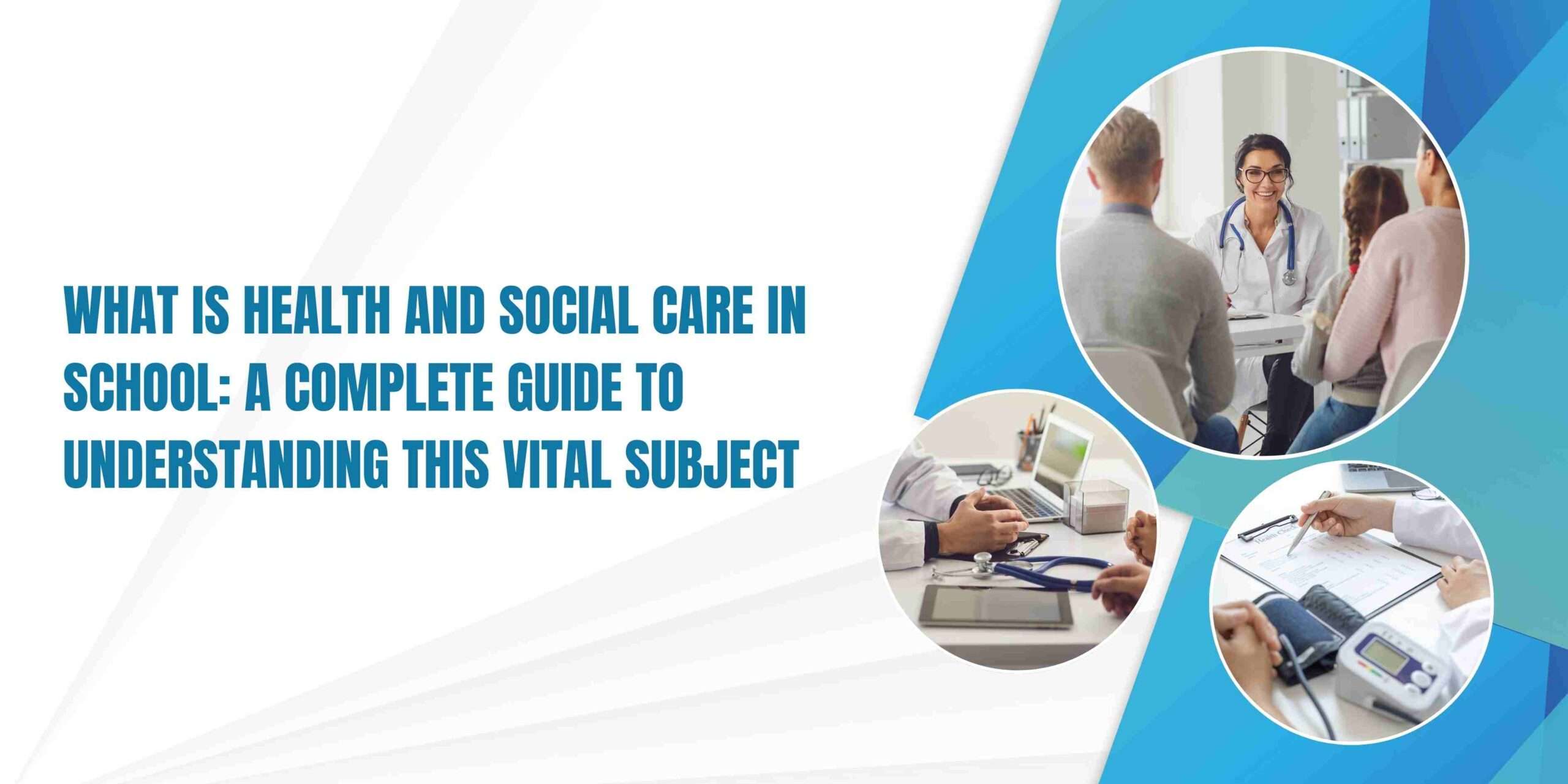Introduction
In today’s rapidly evolving educational landscape, health and social care has emerged as a critical subject offered in many schools across the UK and beyond. Its purpose? To equip students with the knowledge, skills, and understanding needed to thrive in careers related to healthcare, social work, childcare, and community services.
But what is health and social care in school? Why is it offered, what does the curriculum include, and how does it prepare students for future careers or further education? This comprehensive answer all these questions and more.
What is Health and Social Care in School?
Health and social care in school refers to an academic subject designed to teach students about the principles, practices, and professional skills required to work within health, social care, and early years settings. It provides foundational knowledge of how health and social care systems operate, along with practical skills needed to support individuals across various age groups and backgrounds.
Key Characteristics:
- Usually offered at GCSE and BTEC levels (Levels 1–3).
- Combines theoretical learning with practical experience.
- Includes topics related to health, wellbeing, care ethics, communication, and safeguarding.
- Often a stepping stone for careers in nursing, social work, psychology, and other health-related professions.
Why is Health and Social Care Taught in Schools?
1. Preparing Students for Career Paths
The subject provides students with a solid foundation for pursuing further studies or employment in various health and social care sectors, including:
- Nursing
- Social Work
- Healthcare Assistance
- Early Years Education
- Counselling
2. Developing Essential Skills
Students gain valuable skills such as:
- Effective communication
- Empathy and compassion
- Problem-solving
- Teamwork and collaboration
- Understanding of ethics and safeguarding
3. Promoting Awareness of Health and Wellbeing
The curriculum encourages students to understand health issues, wellbeing, and the importance of a balanced lifestyle.
What Does the Health and Social Care Curriculum Include?
The curriculum varies depending on the qualification level (e.g., GCSE, BTEC Level 1, 2, or 3), but generally includes:
1. Core Topics
- Human Growth and Development
- Health and Wellbeing
- Communication in Care Settings
- Understanding Personal Development
- Principles of Safeguarding
- Ethics and Professional Conduct
2. Practical Learning Components
- Work placements (especially at Level 3)
- Role-playing scenarios
- Project-based assignments
- Case study analyses
3. Assessment Methods
- Written assignments
- Presentations
- External exams (for some qualifications)
- Practical assessments
Levels of Health and Social Care Qualifications in Schools
1. GCSE Health and Social Care
- Typically studied between the ages of 14 and 16.
- Provides an introduction to the fundamentals of health and social care.
- Includes basic concepts of health, wellbeing, communication, and safeguarding.
2. BTEC Level 1 and 2 Health and Social Care
- Equivalent to GCSE level.
- Offers a practical and theoretical approach to health and social care.
- Prepares students for further studies or entry-level employment.
3. BTEC Level 3 Health and Social Care
- Equivalent to A-levels.
- Provides advanced knowledge and skills in areas like anatomy, psychology, and ethics.
- Often includes work placements to enhance practical experience.
Benefits of Studying Health and Social Care in School
| Benefit | Description |
| Career Preparation | Provides foundational knowledge for further studies and employment. |
| Skill Development | Enhances communication, empathy, teamwork, and analytical skills. |
| Practical Experience | Offers opportunities for real-world learning through placements. |
| Understanding of Society | Promotes awareness of societal needs and how to address them. |
| Personal Growth | Builds confidence, ethics, and critical thinking. |
Careers Related to Health and Social Care
Studying health and social care in school can lead to a variety of rewarding careers, including:
- Nursing
- Social Work
- Counselling
- Healthcare Assistance
- Occupational Therapy
- Youth Work
- Midwifery
- Mental Health Support
How is Health and Social Care Assessed in Schools?
Assessment methods vary depending on the qualification level and exam board but often include:
- Written assignments
- Examinations
- Practical assessments
- Case studies
- Reflective journals
Challenges of Studying Health and Social Care in Schools
| Challenge | Solution |
| Managing Practical Placements | Balancing schoolwork and placement commitments. |
| Understanding Complex Theories | Seeking guidance from tutors and additional resources. |
| Assessment Pressure | Time management and preparation techniques. |
| Lack of Practical Experience | Engaging in volunteer work or internships. |
Final Thoughts
So, what is health and social care in school? It’s a subject that offers students valuable knowledge and skills relevant to some of the most impactful careers in society. From understanding human development to learning how to provide compassionate care, it prepares young people for further studies and careers in healthcare, social work, and related fields.
As schools continue to broaden their curricula to meet the needs of a diverse and evolving workforce, health and social care will remain an essential subject for those looking to make a difference in people’s lives.







